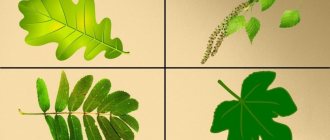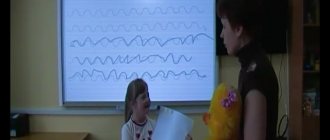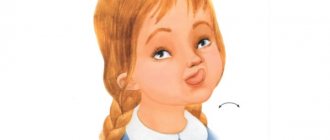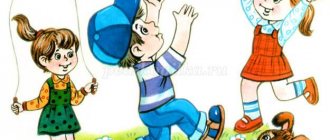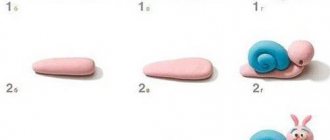Place flowers in a vase
This version of the “Match by Color” game reinforces the idea of three basic tones - blue, red, yellow.
Lesson objectives:
- formation of cognitive and analytical abilities;
- improving finger motor skills;
- fostering perseverance, diligence, and the ability to work productively in a team;
- development of speech, expansion of vocabulary by including words related to the tones of the palette;
- improving the ability to visually perceive objects.
For the didactic game, you need to cut out three vases and many flowers of three corresponding colors from cardboard. The teacher places vases on the table and puts the flowers into piles according to color. Gives the children the task of choosing the correct group of flowers for each vase.
You can complicate the task to develop logic and attentiveness, mix the flowers in one pile. Pupils must correctly distribute the flowers among the vases.
Multi-colored balls
The didactic game “Match balls by color” reinforces ideas about the basic tones of the palette and develops the ability to correlate objects by shade. The exercise promotes speech development and attentiveness.
To play, you need a picture depicting a boy or girl with multi-colored ropes in his hand. You need to cut out balloons of the appropriate colors from cardboard.
The teacher, pointing to the picture, explains that the balloons came off and flew away. The task of preschoolers is to find the balloons that have flown away and correctly attach them to the ropes.
Caterpillar
The didactic game reinforces the idea of the main colors - red, yellow, green, blue.
The lesson promotes:
- the desire for knowledge;
- development of speech skills;
- formation of analytical ability and logic;
- development of attentiveness, perseverance, independence;
- gaining the ability to work with templates.
The activity requires four illustrations of caterpillars as empty circles with painted heads, as well as four colored circles of the appropriate diameter.
Children must make caterpillars from circles, guided by the color of their heads.
For older children, you can complicate the task: cut out circles of light-dark or warm-cold tones, ask them to arrange the caterpillars from beginning to end.
